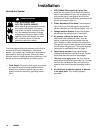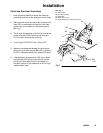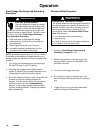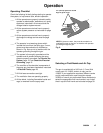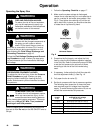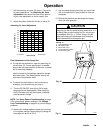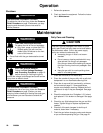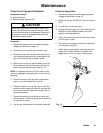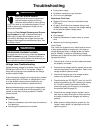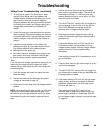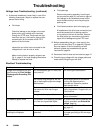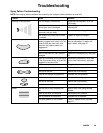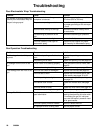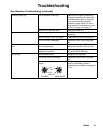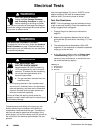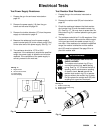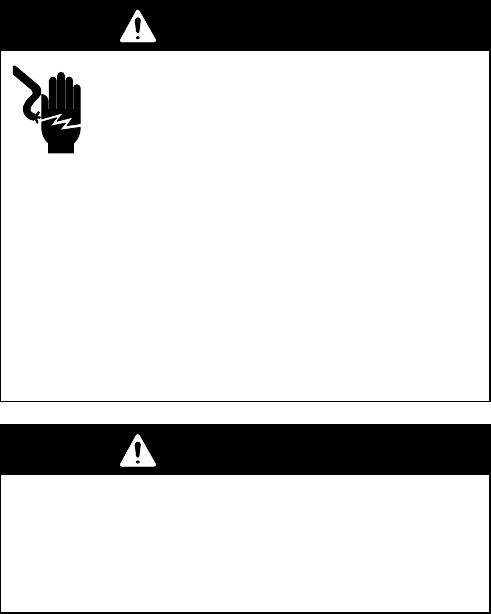
22 308584
Troubleshooting
WARNING
ELECTRIC SHOCK HAZARD
Installing and servicing this equipment
requires access to parts which may
cause an electric shock or other serious
injury if the work is not performed properly. Do not
install or service this equipment unless you are
trained and qualified.
Follow the Fluid Voltage Discharge and Ground-
ing Procedure on page 16 before checking or
servicing the system and whenever you are
instructed to discharge the voltage to ensure the
voltage is discharged and avoid serious injury from
an electric shock.
WARNING
PRESSURIZED EQUIPMENT HAZARD
To reduce the risk of an injury, follow the Pressure
Relief Procedure on page 16 before checking or
servicing any part of the system and whenever you
are instructed to relieve the pressure.
Voltage Loss Troubleshooting
Normal spraying voltage for a system using the PRO
3500wb gun is 45 to 55 kV. The system voltage is
lower due to spraying current demands and voltage
isolation system losses.
A loss of spraying voltage can be caused by a problem
with the spray gun, fluid hose, or voltage block, since
all of the system components are electrically con-
nected through the conductive, waterborne fluid.
Before troubleshooting or servicing the voltage block
itself, you need to determine which component in the
system is most likely causing a problem. Possible
causes include:
Spray Gun
D Fluid leakage
D Dielectric breakdown at the fluid hose connection or
fluid packings
D Not enough air pressure for the turbine
D Faulty power supply
D Excessive overspray on gun surfaces
D Fluid in the air passages
Waterborne Fluid Hose
D Dielectric failure of hose (pin-hole leak through
PTFE layer)
D Air gap in the fluid column between the gun and
isolated fluid supply, causing a low voltage reading
on the isolation system voltage meter.
Voltage Block
D Fluid leakage
D Dielectric breakdown of hoses, seals, or connec-
tions
D Isolators not functioning properly
Visual Check
First, check the system for any visible faults or errors
to help isolate whether the spray gun, fluid hose or
voltage block has failed. A voltage probe and meter,
part no. 236003, is helpful for diagnosing voltage
problems and is required for some of the troubleshoot-
ing tests that follow.
1. Check that all of the air and fluid tubes and hoses
are properly connected.
2. Check that the voltage isolation system valves and
controls are properly set for operation. Refer to the
voltage isolation system manual.
3. Check that the spray gun and voltage isolation
system have sufficient air pressure.
4. Check that the gun ES ON-OFF lever is in the ON
position and that the gun ES indicator light comes
on. If the ES indicator light does not come on,
remove the spray gun for service, and complete
the electrical tests on page 28.
5. Check that the voltage isolation system’s enclo-
sure door or safety fence gate is closed and that
any safety interlocks are engaged and working
properly.
6. Make sure the voltage isolation system is in the
“isolate” mode, where it is isolating the fluid volt-
age from ground.



